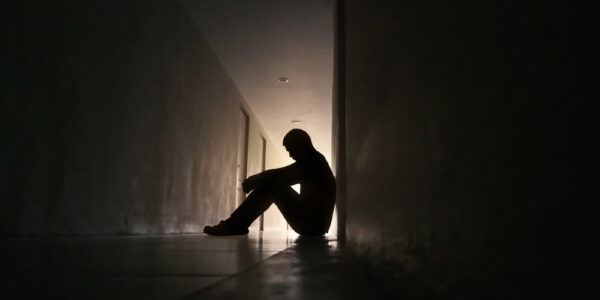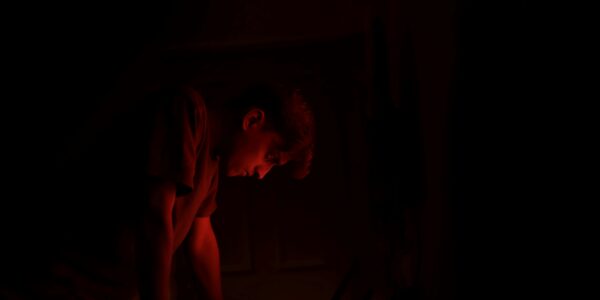LISTEN TO THIS ARTICLE:
Sleep deprivation has many problematic signs, from headaches, mood swings, and memory issues to diabetes, obesity, and heart disease. Sleep is a critical to health, and that’s why we spend a third of our lives sleeping. Adults 18-60 years old should get at least 7 hours of sleep. Despite this, at least 1 in 3 Americans don’t get enough. Learn how to tell when you’re getting too little sleep and what to do about it.
You feel tired during the day.
This is one of the most common signs of sleep deprivation. If you find yourself feeling tired during the day, it’s possible that you’re not sleeping enough at night. This can happen because of stress, anxiety, or other issues. It’s also common for people who work nights or weekends to fall asleep later than usual.
This can also happen from getting poor quality sleep. It’s entirely possible to spend 8 hours in bed but not feel rested when you get up. This can come in many forms, too. Some people take a long time to get to sleep (longer than 30 minutes is too long!) while others wake up in the middle of the night and struggle to get back to sleep.
You are clumsy and less coordinated.
Think about how alert you feel right before you get into bed. It’s a lot less than at the beginning of the day, right? Coordination tests back this up. In fact, studies on the effects of sleep deprivation on physical and mental functioning show that lack of sleep affects the body much like drinking alcohol does.
After you’ve been awake for 17 hours, your body acts like you have a blood alcohol level of 0.05%. That’s equivalent to roughly 2 drinks. Push it to 24 hours awake and those numbers double. That puts you into ‘legally inebriated’ territory just from lack of sleep! Keep this in mind next time you get behind the wheel of a car while you’re sleepy.
You find yourself nodding off during the day.
One of the most striking (and potentially dangerous) signs of sleep deprivation is ‘microsleeps.’ Also commonly referred to as ‘nodding off,’ microsleeps are very short incidents of sleep, usually lasting just a few seconds. While you might get scolded for these at work or school, these can be incredibly dangerous if they happen when you’re driving. These microsleeps are a powerful indication that you need to sleep. If you continue to ignore the signs of sleep deprivation, your body will force you to sleep whether you want to or not.
You have trouble focusing your eyes and keeping them open.
These signs of sleep deprivation often come at the same time that microsleeps do. You’ll struggle to focus your eyes. You may even need to literally hold your eyelids open with your fingers. This is because the tiny muscles that open and close your eyes get tired throughout the day. The same goes for the muscles that focus your eyes. When you’re lying in bed reading, you’ll notice this happening, so you put the book down and go to bed. However, when this happens in the middle of the day, it means you didn’t get enough quality sleep the night before. As with microsleeps, this is all part of your body telling you that you need to rest.
You have cognition problems.
While the exact functions of sleep in the brain are still an active area of study, we do know several things about the role of sleep and the signs of sleep deprivation. The brain is very active during sleep, using the time to repair itself and maintain the pathways critical to memory and attention. In short, the longer you go without sleep, the more your brain will suffer. You’ll struggle to concentrate. Your memory will falter, and you’ll have trouble working through simple problems that you would normally figure out easily. As a result, performance at work and at school will get worse and worse until you get your sleep back on the right track.
Your mental health suffers.
With all the other negative signs of sleep deprivation, it should come as no surprise that lack of sleep hurts your mental health as well. Several mental illnesses like depression, anxiety, and PTSD can disrupt sleep, but the reverse is also true. Poor sleep habits will work against anyone trying to manage these disorders and others. Even if you don’t have an existing mental illness, sleep deprivation can make you irritable and moody and make it harder to manage stress.
You get sick more often.
Sleep is critically important to physical health. It’s common knowledge (which many studies support) that a major sign of sleep deprivation is getting sick more easily and recovering more slowly. Aside from infections, sleep deprivation plays a big role in obesity, diabetes, and heart disease. In fact, lack of sleep increases insulin resistance, decreasing the body’s ability to manage blood sugar levels. It also harms the blood vessels the carry oxygen to the heart, increasing the risk of heart attack.
What do you do next?
You may be suffering from sleep deprivation if you have these signs. Despite this, sleep is one of the first things people sacrifice when they need some extra time. Even if you aren’t purposefully sleeping less, there are plenty of bad habits that will reduce the quality of your sleep. Either way, you next step is simple! Head to our 15 Ways to Sleep Better Guide to get a free guide to sleeping better!

 Learn
Learn Read Stories
Read Stories Get News
Get News Find Help
Find Help
 Share
Share
 Share
Share
 Share
Share
 Share
Share



